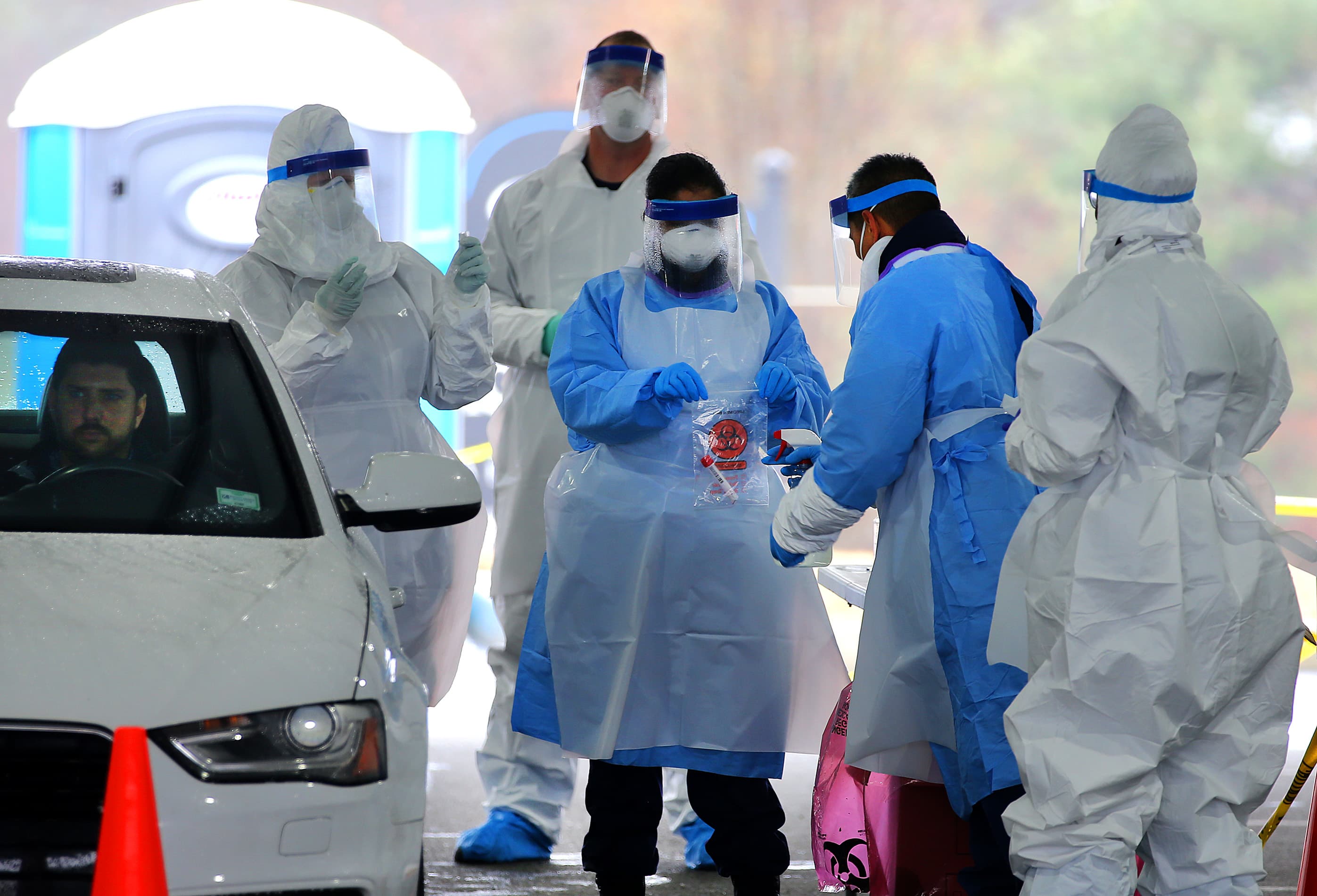FDA grants 'emergency use' coronavirus test that can deliver results in 45 minutes

Diagnostics company Cepheid on Saturday said it has received emergency authorization from the U.S. Food and Drug Administration to use its rapid molecular test for point-of-care patients that can detect the virus that causes COVID-19 in 45 minutes.
This is the first coronavirus test that can be conducted entirely at the point-of-care for patients and deliver results in less than an hour. Typically, tests are sent to central reference labs that can take several days to deliver results.
Cepheid said tests will begin to ship on Friday, March 27 with plans to roll it out by Monday, March 30.
"We are moving into a new phase of testing, where tests will be much more easily accessible to Americans who need them," HHS Secretary Alex Azar said in statement Saturday.
FDA Commissioner Stephen Hahn added that "today marks an important step in expanding the availability of testing and, importantly, rapid results."
"Point-of-care testing means that results are delivered to patients in the patient care settings, like hospitals, urgent care centers and emergency rooms, instead of samples being sent to a laboratory," Hahn said.
The test, called SAR-CoV-2 Xpert Xpress, was developed by Cepheid, a Sunnyvale, California, company was designed to detect SARS-CoV-2, the virus that is causing COVID-19.
Cepheid uses a testing machine called GeneXpert that can run a full test in 45 minutes. There are currently more than 23,000 automated GeneXpert systems worldwide, with nearly 5,000 of them in the U.S., Cepheid said in a statement.
Cepheid uses a very similar technology for flu tests.
"During this time of increased demand for hospital services, clinicians urgently need an on-demand diagnostic test for real-time management of patients being evaluated for admission to health-care facilities. An accurate test delivered close to the patient can be transformative — and help alleviate the pressure that the emergence of the 2019-nCoV outbreak has put on health-care facilities that need to properly allocate their respiratory isolation resources," Dr. David Persing, MD, Ph.D., chief medical and technology officer at Cepheid said in a statement.
Cepheid President Warren Kocmond added that its automated systems "do not require users to have specialty training" to perform the tests.
Read More
No comments